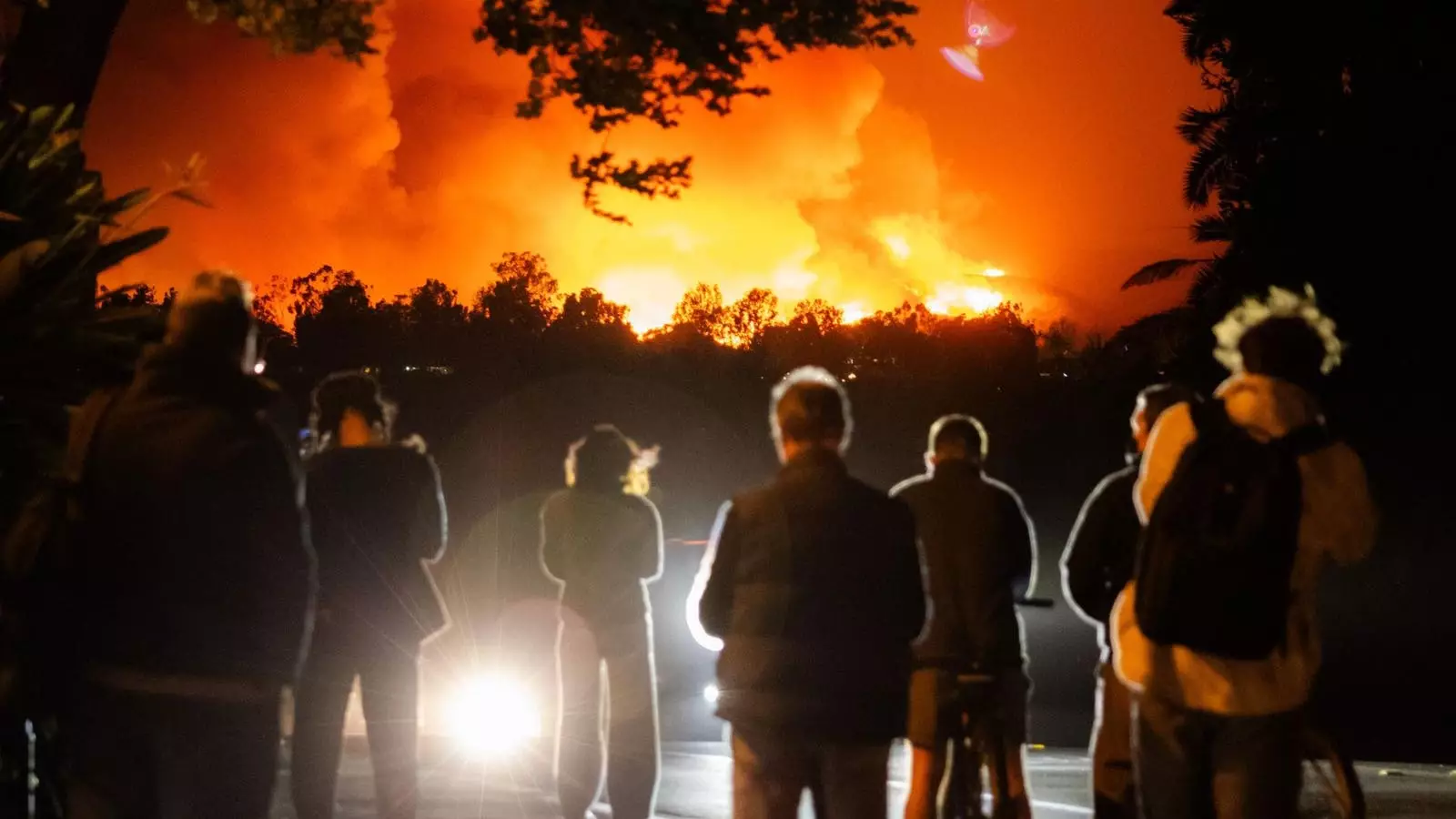As we step into another year, it is impossible to ignore the harrowing impact of climate change, which often disrupts our plans and reshapes our lives in unforeseen ways. The recent wildfires in Southern California serve as a stark reminder of this reality, illuminating the environmental crises that continue to plague our planet. Unlike the cyclical nature of seasonal wildfires, which can benefit ecosystems by clearing old growth, these winter blazes expose a troubling trend: the increasing ferocity and unpredictability of natural disasters directly linked to climate change.
The end of 2024 was marked by the devastation of entire communities, leaving families grappling with loss, uncertainty, and pain as they watched their homes go up in smoke. This predicament not only affects those in the immediate vicinity but has ripple effects that touch all aspects of life, including economic stability and community cohesion. The shift in wildfire patterns stands as a wake-up call, forcing us to acknowledge the pressing need for systemic change—and this call cannot be ignored any longer.
Yet amid such overwhelming despair, there are heartening narratives of community resilience that emerge. In the face of calamity, individuals and groups are banding together to extend support to those in need. Stories of chefs preparing meals for displaced individuals and volunteers providing relief services during these fires exemplify the best of human magnanimity. These collective efforts illuminate a path forward, highlighting the power of community bonds when confronted with shared crises.
Everywhere we turn, there are opportunities for solidarity—whether through direct outreach, monetary donations, or simply spreading awareness of the ongoing struggles faced by many. This moment reinforces the idea that charity and kindness can rise to the surface when everything else seems to be falling apart. Individuals who have the resources are called upon to lend a hand; mutual aid networks have sprung up, and organizations like World Central Kitchen, which caters to first responders, play a vital role in caregiving amid disaster.
In addition to immediate relief efforts, it is essential to engage in broader conversations about the underlying issues exacerbating situations like these. Food insecurity, magnified by climate crises, should lead to an urgent reevaluation of our agricultural practices and policies. Those pondering the intersection of food systems and climate change might be inspired to join discussions focusing on the seriousness of this issue, such as those featured in Chloe Sorvino’s upcoming book tour for “Raw Deal: Hidden Corruption, Corporate Greed and the Fight for the Future of Meat.”
These discussions are vital for fostering awareness of the systemic challenges posed by climate change. By elevating dialogues about sustainable practices, we not only address immediate crises but also work towards longer-term solutions that benefit both people and the planet.
As we look to the future, it is essential to equip ourselves for what lies ahead. The uncertainties brought by climate change require adaptability and foresight. Individuals must consider how changes in the economy and resource availability affect their daily lives, from grocery prices to lifestyle choices. Awareness is the first step toward practical decision-making, ensuring that we are not blindsided by future challenges.
While setting personal resolutions may be a common New Year’s tradition, it is worth reflecting on the collective resolutions we can make as a society. Building a more resilient, compassionate, and eco-conscious world should be at the forefront of our aspirations, serving as a unifying theme for the years to come.
A Call to Action
The unfolding situation surrounding Southern California’s wildfires offers a painful yet necessary lesson for us all. It begs the question: what can we do to combat climate change and its devastating effects? Our focus should not solely lie in reactive measures but should also encompass proactive approaches built on community support, sustainable practices, and unwavering commitment to creating systemic change.
Through awareness, action, and a shared sense of responsibility, it is possible to navigate these turbulent times and emerge stronger on the other side. Each contribution, no matter how small, can help foster a spirit of resilience and solidarity that encourages us to press on in the face of overwhelming odds. Looking ahead, the importance of cooperation and collective action cannot be overstated; we have the power to shape the narrative of our world, and we must seize it.


Leave a Reply